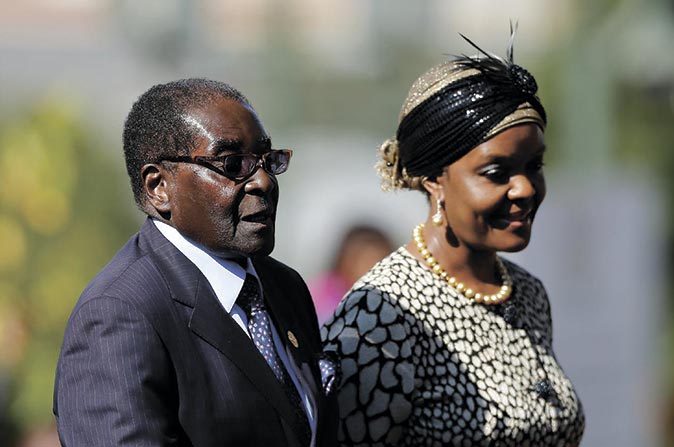Economy / Zimbabwe
Succession plans needed to build stability

President Mugabe with his wife Grace.
Zimbabwe’s next general election is three years away but politicians are already maneuvering in preparation for a potential shift in party leadership. Factions within the ruling Zanu-PF’s ranks have led President Mugabe to make three cabinet reshuffles in ten months and as ministers shift cabinet seats, the perception of a stable political environment risks being eroded for a government tasked with providing the country with a workable economic plan.
The battle for who will succeed Mugabe, should the 91-year-old not stand in 2018, is intensifying. Leading the race are the recently expelled Vice-President, Joyce Mujuru, her replacement Vice-President Emmerson Mnangagwa and the President’s wife, First Lady Grace Mugabe.
Mujuru in December of last year lost her position in government after she was accused of leading an opposition group to President Mugabe within Zanu PF. Since her departure from office she has published a manifesto named the Blueprint to Unlock Investment and Leverage for Development, otherwise known as BUILD.
The country’s current, Vice-President was handpicked by Mugabe in 2014 and has since increased his role on the everyday running of party policy. The appointment was interpreted by many as elevating Mnangagwa to the prominent and influential role to allow him to lead in 2018. While the president’s wife has not explicitly declared an intention to run, her attempts to carve out a political identity that extends past her role as First Lady are seen as an attempt to include herself in any race.
Such political uncertainty risks damaging the economy’s reputation in the eyes of investors, with a more controlled choice being seen as the most reassuring.
